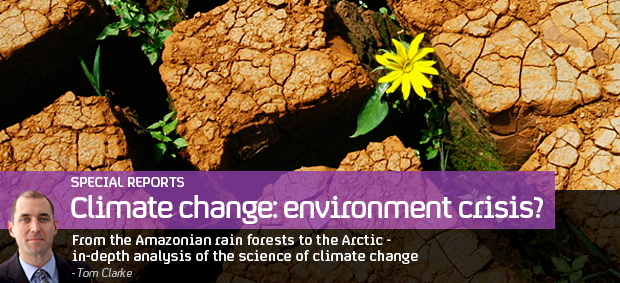Earth Summit: 20 years of wasted opportunity?
Hope of meaningful agreement at the Rio Summit on Sustainable Development is all but gone. Could this be the last time leaders agree to meet to pledge action on the environment?
Greens had hoped that the summit would lead to concrete steps towards meaningful action on curbing man’s destructive influence on our atmosphere, forests and oceans.
However, the draft communique that leaders will be signing, entitled The Future We Want, has been criticised for a lack of ambition and political commitment.
“We were promised the ‘future we want’, but are now being presented with a ‘common vision’ of a polluter’s charter that will cook the planet, empty the oceans and wreck the rain forests,” said Kumi Naidoo, executive director of Greenpeace International.
Even policymakers are dismayed. Connie Hedegaard, the EU commissioner for climate change, said last night on Twitter: “Telling that nobody in that room adopting the text was happy. That’s how weak it is. And they all knew. Disappointing.”
The first Earth Summit, in Rio in 1992, gave rise to declarations on climate change, clean water and biodiversity, as well as an abundance of hope.
No significant progress
Today’s meeting, the largest summit ever organised by the UN, was designed to renew some of the environmental vows made 20 years before.
But since then, what has been achieved? International progress on climate change ended in stalemate at the 2009 talks in Copenhagen.
A recent report by the UN Environment Programme concluded that there has been no significant progress on 86 of the 90 environmental objectives set out in 1992.
And the grave future outlined in 1992 is, in many ways, upon us.
The planet is half a degree warmer; annual carbon emissions have risen by almost 50 per cent; coral reefs have shrunk by more than a third; and there are 1.5 billion more people to feed, house and clothe.
But just because legally binding commitments will fail to come out of Rio does not necessarily mean the environment is a lost cause.
Healthier planet
Some observe a new environmentalism is emerging – one that is not led by western NGOs putting pressure on developed world governments. The future will be dictated by the developing world and the businesses that cater for its needs.
“The global environment is no longer in the hands of the west; it’s in the hands of the rest,” said Michael Shellenberger, president of the Breakthrough Institute in California.
What’s more, shifting attitudes towards development could help – not hinder – the need to protect the planet.
Since the 1992 summit, it has been accepted that migration to cities can actually reduce impacts on the planet – people in cities tend to have fewer children and can have smaller environmental footprints.
Technological developments have also prevented some of the crashes in global food production that formed the scare stories of previous decades. “There are a lot of ways development is improving sustainability,” says Shellenberger.
Indeed, the human planet is a healthier one. Fewer people live without electricity and adequate water supply. Fewer are in poverty. And despite the lack of international agreement, the world is in many ways a better place since 1992.
More people get their power from renewable energy. Deforestation has slowed – especially in the Amazon.
UN declarations signed by our leaders did little to deliver those improvements.
But it is almost certain they would not have happened if our environmental woes had not been laid bare and discussed through the UN process.
The Rio+20 summit may end up having been nothing but a talking shop. But talk precedes action.
-
Latest news
-
‘Authentic Stupidity’: Ben Elton’s new show explores how idiotic human beings can be5m

-
Is Israel’s evacuation of Rafah the precursor to full scale invasion?3m

-
Eurovision: Non-binary artist wins for first time2m

-
Tens of thousands march in Georgian capital against ‘foreign agents’ bill2m

-
‘Russia’s number one goal is to get troops closer to Kharkiv,’ says Ukrainian security analyst4m

-





